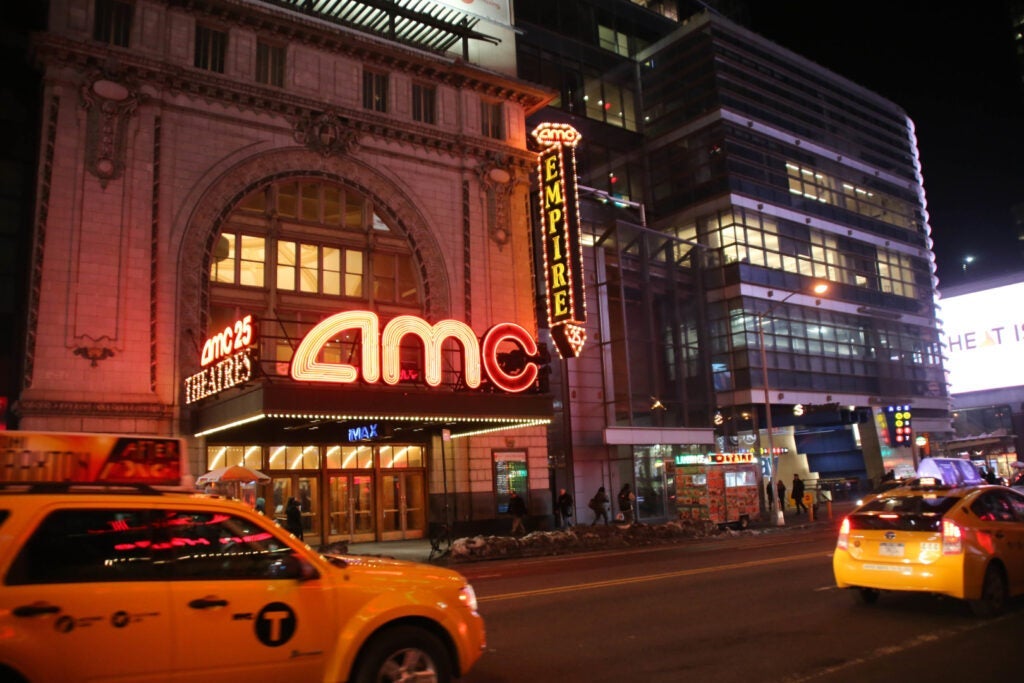This week we received two press releases at Sprudge related to coming waves of automation in the cafe space. And it really got me thinking.
Automation is a double-edged sword. It can remove tasks from workers’ plates to allow them to focus on other, arguably more impactful, parts of their jobs. But businesses aren’t charities nor are they families, and once a machine can tick the boxes that comprise a job function, that job will simply cease to exist.
Of course, only half that story gets told when extolling the merits of automation, to the public anyway. What’s left less explicit is the human collateral. But it’s there, hidden between the lines or lurking just one step ahead at the inevitable conclusion of cause and effect. And as tech continues its crusade to disrupt the coffee industry, and despite what the PR fodder would have you believe—or at least prefer you didn’t think about—it is ultimately the workers that suffer its brunt.
It’s a familiar playbook, full of glossy half-truths and bottom lines -washed and laundered palatable for unscrupulous consumption. It’s marketing Madlibs.
[Person] [does action] leading to [consequence] that [product] fixes, so that [consumer benefit].
We saw it with Atomo, the “molecular” coffee maker this publication has been very critical towards.
[Producer] [grows coffee] leading to [deforestation] that [Atomo] fixes, so that [you can feel good about your consumption].
(We’re not going to rehash all the ways this is greenwashing and ultimately ineffective at even the stated goal, but if you want to know, you can read about it here.)
But now that we’ve tech-babble eliminated the need for coffee farmers, it should come as no surprise that the same tactic is now being used on the most vulnerable at the other end of the supply chain: the baristas. Last week, it was a start-up called p!ng, creators of fully automated coffee drive-thrus. See if you can spot the Madlib.
“[p!ng] is set to revolutionize the way people grab their daily caffeine fix by offering a reliable drive-thru coffee experience with next to no wait times, and no chance of human error.”
[Baristas] [are slow and inaccurate] leading to [wait times and wrong orders] that [p!ng] fixes, so that [consumers get correct drinks faster].
Like with Atomo, it sounds nice and good when you let the claims uncritically wash over the lizard parts of your brain. But it all starts to erode under even the slightest scrutiny. For logical ends to meet here, we must shift the entirety of the blame for occasionally incorrect drinks—a real scourge of the industry, apparently—onto the baristas. Unlike human baristas, the argument has to go, human customers never make a mistake or don’t understand what they are ordering, and they certainly fess up to making the error on the off chance it does happen. (Macchiatos don’t exist in this world.) We also need to assume that machines—and AI for some reason—can not only make drinks faster than humans, which presumably they can, but in such a way that when five or 10 customers arrive at the same moment, there is “next to no wait times.” I assume the laws of three-dimensional space and time still apply to automated drive-thrus, I could be wrong though. Jordan had to wait around for Briggo back in the day, but I know things change quickly.
The truth is that it doesn’t really matter. What matters is that first, you distort and vilify. And if a problem doesn’t exist, fudge it a little bit until one does. “20 to 45 minute wait times!” “1 in 10 orders are inaccurate!”
The consumer isn’t always the stated beneficiary of automation, sometimes it’s the barista. The secret conclusion, though, is always the same. Thus is the thrust of Sidework, “a new dispenser designed to handle billions of complex drink variations with speed and precision, empowering baristas to prioritize customer service.” It of course comes with familiar claims about baristas being inaccurate and slow, but smartly shifts the blame to the modern problem of complex drink orders. If baristas don’t have to worry about making complicated beverages, they can focus on that old familiar refrain: community.
[Baristas] [are slow and inaccurate] leading to [wait times and wrong orders] that [Sidework] fixes, so that [baristas can provide a more engaging experience].
New York-based Gregory’s Coffee has bought into that idea, rolling out over 50 of the Sidework drink dispensers across their locations nationwide. (The brand is part of Kitchen Fund, “a growth equity investor that provides capital, connections, and know-how to help brands bring their story, ethos, and recipes to eaters everywhere.”) Founder and CEO Gregory Zamfotis—whom we interviewed back in 2016, when the brand had only 19 shops in and around New York—was even included as part of the PR push to extol its virtues, hitting all the copy points along the way.
“The dispenser handles drink orders fast and accurately, reducing wait times and order errors,” he’s quoted in the presser. “We’ve not only improved our service quality but also enabled us to expand our menu to offer more options to our Gregulars. Sidework has been a stellar partner to us and we are looking forward to continued growth with them.”
Sidework co-founder and CEO Rishabh Kewalramani shares similar ideas. “Customers demand complex and customizable drinks, and venues must meet that demand without overwhelming their staff. Sidework’s dispenser makes this possible by allowing baristas to focus on those often overlooked, but nonetheless important, human interactions while the technology handles the drink-making.”
This all sounds great. Cafes as third places with baristas unencumbered by drink prep to lead the charge in community building. This is normally the part where I would tell you to read between the lines and see what the next logical step is, except that Sidework went ahead and said the quiet part loud on their website.
“At Sidework, our mission is to help businesses thrive in a beverage landscape that’s growing increasingly complex. With an average ROI of 200-300%, our dispenser is designed to not only enhance service, but also drive profitability by reducing labor costs and increasing revenue.”
Customer service and human interaction, profitability and reduced labor costs. It’s all sleight of hand, a little razzle dazzle to misdirect from the untoward reality behind the magic. Abracadabra, the machine made your job easier! But what if with all these new machines we really don’t need all this staff, do we? What if that meant some of those pesky monthly labor costs just started to… disappear?
The truth of the matter is that technology and automation are but tools to be wielded at a business’s discretion. They don’t have agency, they’re morally agnostic. Tools can be good! They can, in fact, make our lives easier. What they are keenly adept at is shining a harsh light on what matters most to businesses. Is it people, like all the sanitized copy demands we take at face value? Or is it profit? Automate a few processes and see if jobs are better or simply fewer.
Meanwhile it is the coffee professionals, in this case the baristas, who will suffer from the coming wave of cafe automation. And not just the ones who find themselves out of a job. The thirst for disruption flattens the quality of work to merely an outcome. A drink is a drink is a drink. You make it, the machine makes it, who cares, it’s all the same. Out of necessity it reduces the job of the barista to unskilled labor, a slow and imperfect producer of monolith that’s no match for whatever mechanized version they are hawking—made all the more culpable for their own demise with the help of a well-crafted post-truth PR blast.
Tech, automation, it’s inevitable. It’s coming whether we like it or not. But how we use it remains to be decided. We’re all for coffee tech making cafes run smoother, but when you start talking about cutting out the farmer or cutting out the barista, reducing these human elements of the coffee experience to labor costs on an equity fund ledger sheet, that is where we get the ick. Letting the disrupting forces dictate the terms via disingenuous green- or community-washing, though, is the worst part of all of it. It’s like we’re automating the opening of Pandora’s box.
Zac Cadwalader is the managing editor at Sprudge Media Network and a staff writer based in Dallas. Read more Zac Cadwalader on Sprudge.











